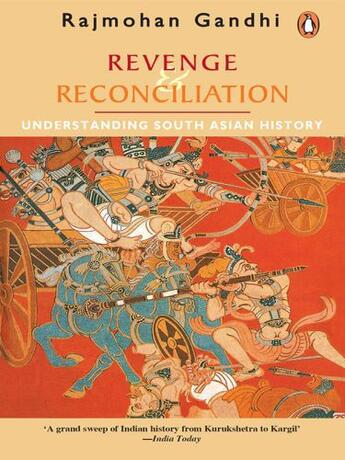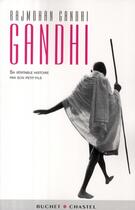-
Nombre de pages : (-)
-
Collection :
(-)
-
Genre :
(-)
-
Thème :
Non attribué
-
Prix littéraire(s) :
(-)
Résumé:
An original, provocative and compelling reading of the subcontinent's history In this remarkable study, well-known biographer Rajmohan Gandhi, underscoring the prominence in the Mahabharata of the revenge impulse, follows its trajectory in South Asian history. Side by side, he traces the role... Voir plus
An original, provocative and compelling reading of the subcontinent's history In this remarkable study, well-known biographer Rajmohan Gandhi, underscoring the prominence in the Mahabharata of the revenge impulse, follows its trajectory in South Asian history. Side by side, he traces the role played by reconcilers up to present times, like the Buddha, Mahavira and Asoka.
Encompassing myth and historical fact, the author moves from the circumstances of Drona's death and Parasurama's slaying of the Kshatriyas to the burst of Islam in India and Akbar's success in gaining acceptance for it, the executions of Guru Arjan Dev and Guru Tegh Bahadur, and Shivaji's achievement of self-rule. His explanation of the 1947 division of India identifies the role of the 1857 Rebellion in shaping Gandhi's thinking and strategy, and reflects on the wounds of Partition. The survey of post-Independence India, Pakistan, Bangladesh and Sri Lanka also touches upon the tragic bereavements of six of their women leaders.
Incisive and finely argued, Revenge and Reconciliation compels us to confront historical and contemporary realities of intolerance, while pointing to possible strategies of mutual accommodation in India and the rest of South Asia at the threshold of the twenty-first century.
Donner votre avis















